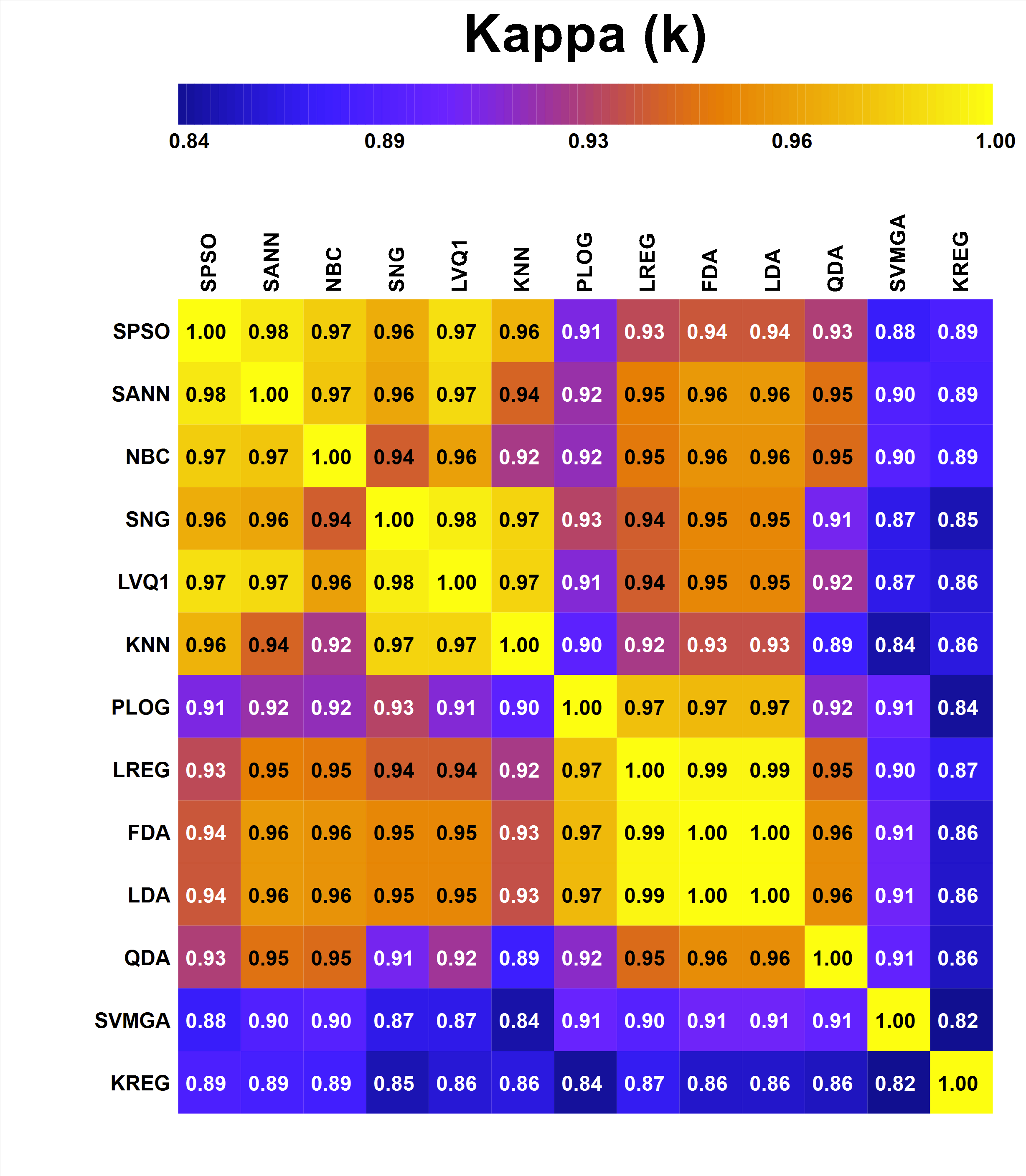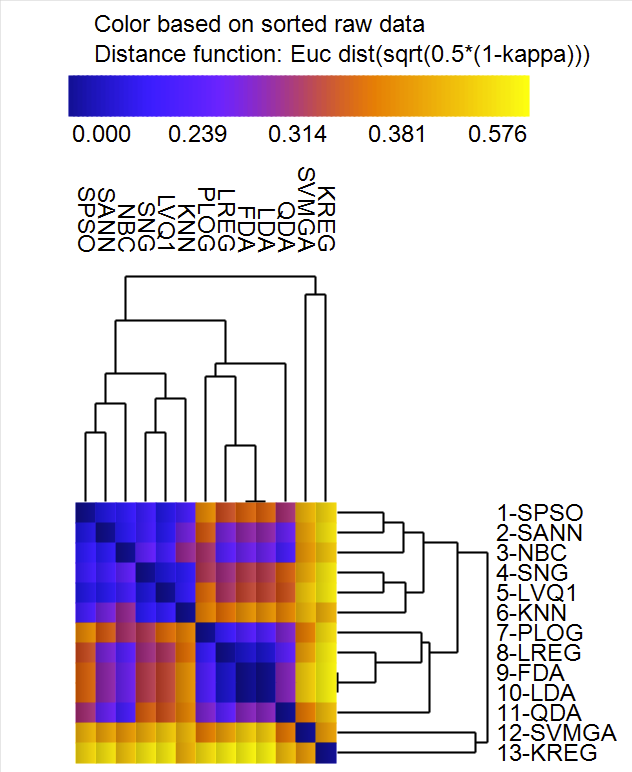The eigenvalues would really only reveal how many classes (single classifier) or how many classifiers are correlated with one another (multiple classifiers). But if you look at the quasi-diagonalized Kappa matrix for all possible pairs of classifiers applied to the 3-class Wine dataset below:
...you can then perform hierarchical cluster analysis using a modified form of Euclidean distance to see which classifiers cluster with one another:
Note, this Kappa matrix is a $13 \times 13$, so when looking at the clustering, I notice three large groups of classifiers which are sizes 6, 5, and 2, so I would expect the eigenvalues of a correlation matrix (MCC) to perhaps show something similar to this. That is, you wouldn't likely have one large eigenvalue like 8 or 9, with the remaining in the other dimensions.
I believe you can do more surgery (drilling down) regarding discovery on classifier behavior taking this approach instead of perform eigendecomposition.


